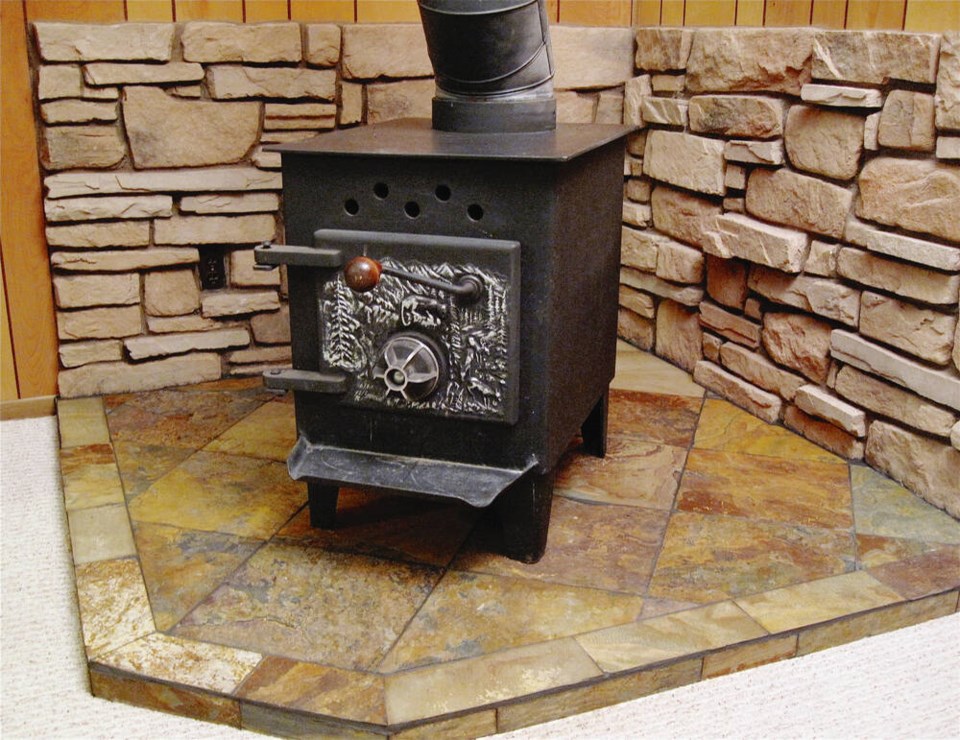The Cowichan Valley Regional District has put a $300 bounty on old wood stoves that produce harmful smoke that gets trapped in the low-lying valley.
Residents who give up their out-of-date wood stoves, which must be in working order, aren’t required to buy another appliance to get the one-time incentive.
Burning wood in inefficient appliances sends fine particulate matter into the environment where people breathe it in, says the Cowichan Valley Regional District, adding that if just one out-of-date wood stove is eliminated, it can improve air quality in an entire neighbourhood.
Kate Miller, district environmental services manager, said it’s especially important because of the Cowichan Valley’s topography.
“Living in a low-lying valley with surrounding mountains limits the amount of wind that is required to mix atmospheric air, which can cause smoke to persist for days.”
Wood-smoke pollution levels in the Cowichan Valley can be among the highest in the province.
That matters because B.C.’s Environment Ministry says PM2.5, the fine particulate matter in wood smoke, is “one of the most important outdoor air pollutants from a human-health perspective.
In Courtenay, where a heat inversion sends wood smoke down toward ground level, the city agreed last month to install additional air monitors to test for PM2.5.
Wood smoke can exacerbate asthma and chronic obstructive pulmonary disease, reduce lung function, and increase the risk of heart attack or stroke.
The bounty program is part of a package of incentives offered by the regional district to make the air cleaner, including $2,350 to replace a wood-burning stove with a heat pump, $1,050 to replace a wood stove or outdoor wood boiler with a newer pellet stove or boiler, and $550 to replace an older or uncertified wood stove.
As the cost of living increases, the aim is to make upgrading appliances more affordable to residents, Ladysmith Mayor Aaron Stone, who chairs the district’s board, said in a statement. The district is home to just over 80,000 residents.
Residents applying for a heat pump rebate will be allowed to keep wood-burning appliances to use in case of emergencies. Rural residents worried about the increasing strength and intensity of winter storms have expressed concern about relying only on a heat pump, said Leah Berscheid, an environmental technologist with the district.
The CVRD is one of many B.C. local governments providing incentives to encourage residents to scrap older appliances in favour of cleaner-operating devices with support from the province-wide community wood-smoke reduction program, which is funded by the B.C. Lung Association and the Ministry of Environment and Climate Change.
The Hearth, Patio and Barbeque Association of Canada recommends people use certified appliances featuring new technology.
It also suggests using locally sourced wood, seasoning wood for at least six months to reduce its moisture content and storing firewood off the ground, outdoors, with the top of the stack covered. Wet wood does not burn efficiently or create as much heat and it generates excessive smoke, it said.
To see how much you might be able to receive in multiple rebates go to:
betterhomesbc.ca/rebate- search-tool
To check on air quality levels in the Cowichan Valley, go to: cvrd.ca/2187/Air-Quality- Mapping.
>>> To comment on this article, write a letter to the editor: [email protected]



